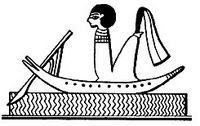Library Journal recommends Hillman biography
Russell, Dick. The Life and Ideas of James Hillman. Vol. 1: The Making of a Psychologist. Skyhorse, dist. by Norton. Apr. 2012. c.528p. ISBN 9781611454628. $35. PSYCHThe Life and Ideas of James Hillman:
Psychologist and neo-Jungian James Hillman (1926–2011) is best known to the general public from an appearance on Oprah that catapulted his 1996 book The Soul’s Code to the top of the best sellers lists. In that title (one of more than 20 that he wrote), Hillman posited that a person’s early life can best be understood in retrospect, as preparation for a mature life’s task. Here, in the first of a two-volume authorized biography, Russell (On the Trail of the JFK Assassins) applies this method to Hillman’s own early years, emphasizing how his family history, education, and travels displayed many connections to Carl Jung, foreshadowing his later career as the director of the Jung Institute in Zurich. Born in Atlantic City in a hotelier family, Hillman traveled extensively in the 1940s and 1950s as a member of the U.S. Navy Hospital Corps and then as a student.
Verdict A very readable biography, this book is recommended for general and scholarly individuals with an interest in neo-Jungian and depth psychology.—Mary Ann Hughes, Shelton, WA
The Making of a Psychologist
Volume 1
by Dick Russell
Hardcover: 528 pages
Publisher: Arcade Publishing; 1 edition (June 11, 2012)
ISBN-10: 161145462X
ISBN-13: 978-1611454628
Labels: James Hillman







